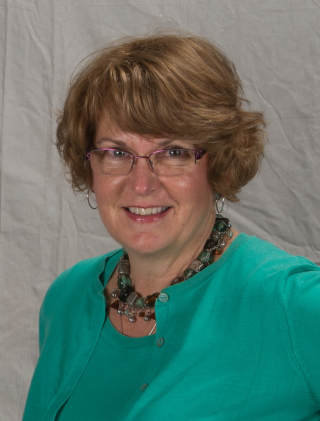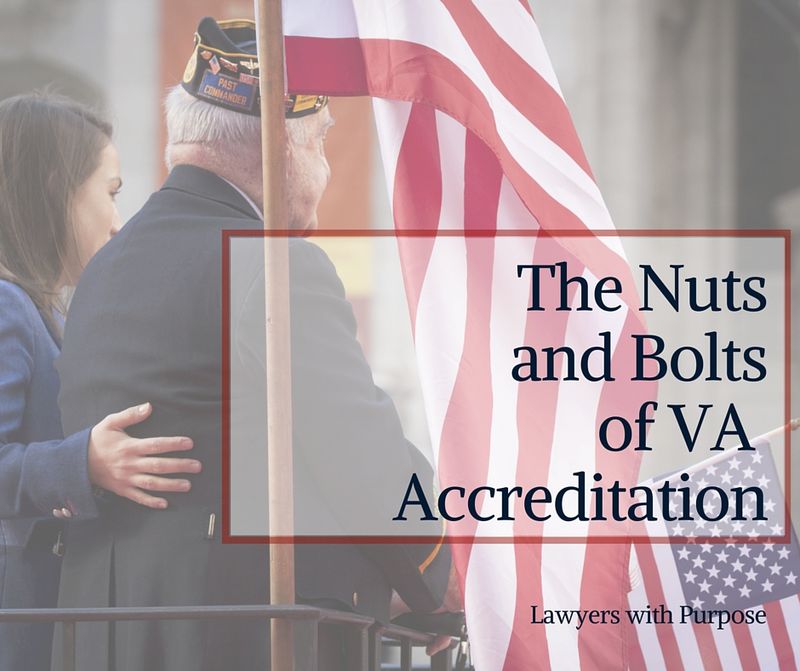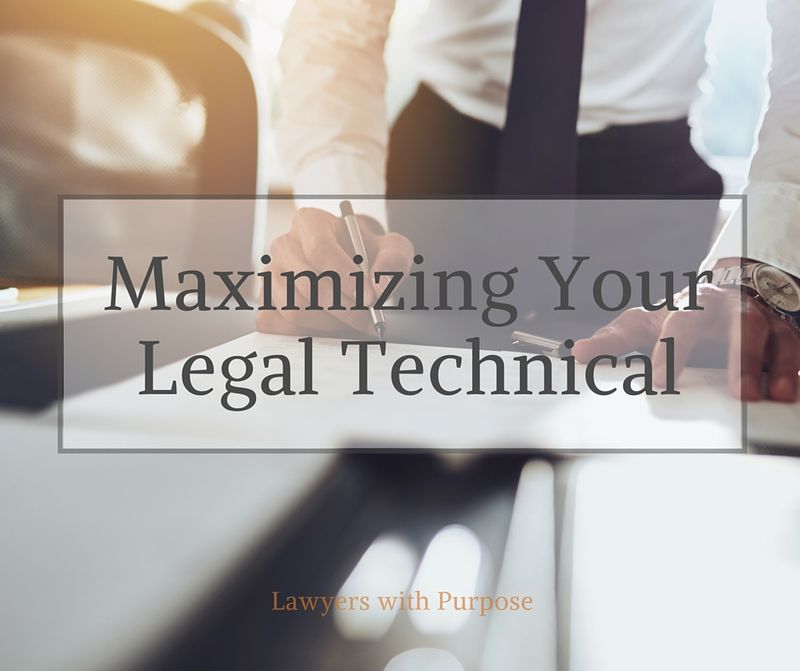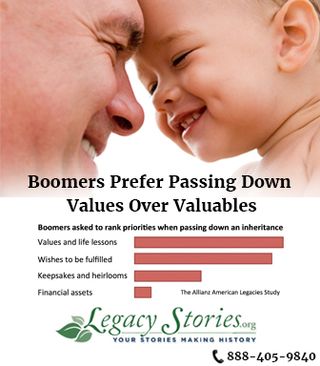You may be aware that the Department of Veterans Affairs (VA) will be implementing a proposed three-year lookback period for asset transfers sometime in 2016. Until this rule becomes final, veterans and their surviving spouses can continue to transfer assets out of their name and become almost immediately eligible for VA pension under the asset standard. However, you may have already experienced the “income lookback,” which is when the VA questions income prior to the effective date of a claim. Today, I will explain why this occurs, whether it matters, and finally, how you respond. But first, let’s cover what determines the effective date of a claim.
 What is the effective date?
What is the effective date?
The effective date is technically the date the VA receives the intent to file claim or the formal claim. If you file an intent to file claim or a formal claim on June 6, 2016, the effective date is June 6, 2016. However, actual payment for awarded claims begins the first of the month following the month in which the intent to file or the formal claim is filed. Thus, when we think of effective date, we are usually thinking of when payment begins. Therefore, if you file an intent to file claim or formal claim on June 6, 2016, the effective date for payment would be July 1, 2016.
Regardless of the effective date, there are situations in which the VA will consider retroactive months. A veteran can seek benefits for up to 12 months prior to the effective date if he/she was disabled and financially eligible at that time. Note that when you seek this, you should specifically include the citation in Title 38 CFR Sections 3.114 and 3.400 and provide income, asset, and medical expense information for the prior 12 months as well as for the current time period. A surviving spouse has up to a year after the death of the veteran to file a claim for death pension, and the VA will grant retroactively to the month of the veteran’s death. If he/she files after this one-year window, the effective date will be the first of the month following the month in which the intent to file or the formal claim is filed.
Why does the VA question income prior to the effective date?
The VA is supposed to explore potential retroactive benefits, or at least inform claimants of them. Although you might not expect the VA to go out of its way to find out if a claimant was owed benefits for any period of time before filing a claim, it can happen. I have seen death pension claims awarded back to the month of the veteran’s death, even though the surviving spouse was not eligible at that time, and despite the fact that we specifically requested a later effective date when he/she was eligible.
Questions regarding prior income generally arise because the VA cross-checks income submitted on the application for benefits (the VA forms 21P-527EZ and the 21-534EZ) with what is on record with the Internal Revenue Service (IRS). The VA started doing this in the year 2013 once it phased out the Eligibility Verification Report, which was the annual review of income and medical expenses to confirm VA eligibility. Because the VA is seeing historical information, the income reported to the IRS in prior years may be substantially more than what a claimant currently expects to make.
Does it matter if the VA questions income prior to the effective date?
If you are seeking retroactive benefits, then you should expect the VA to question income prior to the effective date, as well as assets and medical expenses, which, in this case, does not matter. Another possibility – and this does occur – is that by checking with the IRS, the VA discovers an income stream that was not reported to you and thus is not included in the claim. This is not necessarily intentional on anyone’s part but may be due to a family’s unfamiliarity with an incompetent claimant’s financial details. This can occur with irregular sources of income in particular. In this case it does matter, as you must now concede to the VA that there is additional income of which the family was not aware. If there is more income being currently received by your claimant than you knew about, then you might not have enough recurring medical expenses to offset this newly found income, and this could result in a partial award or denial. You may need to plan to file actual medical expenses annually with the VA in order to maximize your claimant’s pension benefit.
When it does really matter is when that income is no longer being generated as of the effective date (e.g. because interest-bearing assets were liquidated, spent down or transferred, because a retirement fund was withdrawn, because bonds were cashed, etc.) because the VA Adjudication Manual M21-1, V.iii.1.E.6.o on “Income Received Before the Effective Date of the Award” specifically states:
Do not count income received before the effective date of an original or new award. (For Survivors Pension cases, do not count income received between the effective date and the date of the Veteran’s death.) The effective date is the date a claimant is entitled to benefits without regard to 38 CFR 3.31.
And elsewhere the VA Adjudication Manual M21-1, V.i.3.A.3.c defines the “Reporting Period for Current-Law Pension” as:
Current-law pension income is based on 12-month annualization periods. After the initial year, income-counting periods for irregular income and medical expenses coincide with the calendar year. Income is reported on a calendar-year basis.
If the case involves … an original or reopened claim
Then … the initial annualization period extends from the date of pension entitlement through the end of the month that is 12 months from the month during which entitlement arose.
Finally, even the main application forms for veterans’ improved pension (the new VA form 21P-527EZ) and the surviving spouse’s death pension (VA form 21-534EZ) specifically request income as of the effective date for expected income such as dividends and interest.
How do you respond?
You should respond to all inquiries from the VA, but depending on your claimant’s particular scenario you must decide whether the appropriate response is to rebut or regroup. Regardless of the scenario, make sure to reply in a timely manner or request an extension. You are usually given at least 30 days to respond or the VA will go ahead and decide a claim, and that may mean a denial or an approval for a lesser amount, if they are considering prior, higher income. This does not mean that you have no recourse after the VA has issued such a decision. If you get a denial, you still have up to one year from the date of the denial letter to appeal. If you have an approval for a lesser amount, you have a little more flexibility, as the VA must consider any income/medical expense information as long as it is submitted within the calendar year following the year in which that income/medical expense occurred. For example, if I had a claim approved today for a lesser amount based on income that the claimant received in tax year 2015, then I would have until 12/31/2017 to submit a rebuttal of this information, and the VA must consider it.
If you decide that the VA’s inquiries into income prior to the effective date should be rebutted as immaterial to your client’s claim, then you can respond with the citations from the VA adjudication manual above and essentially state in your rebuttal that income prior to the effective date is irrelevant.
However, despite the VA’s own regulations, you may struggle to get them to accept this rebuttal, and they often still insist on evidence of termination/liquidation of any accounts that historically have generated more income than what is declared on the VA claim. In the interest of getting your client awarded his/her rightful pension sooner rather than later, you may choose the path of least resistance and obtain the requested documentation.
Nevertheless, the very real possibility that the VA may question income prior to the effective date may shape how your firm recommends that clients transfer assets. Consider closing accounts rather than transferring or renaming accounts to create a clean break. Go ahead and collect documentation about closed accounts so you will be prepared in anticipation of such an inquiry from the VA. You may even want to consider inserting a statement with VA formal claims that explains that expected income will decrease significantly as compared to prior years due to liquidating interest-bearing accounts to pay for increasing medical costs. Also you may want to anticipate issues by requesting the prior year’s tax return of any VA claimant so you can see what information the VA is likely going to get from cross-checking with the IRS.
After the proposed changes affecting pension benefits and transfers of assets become final, we expect that the VA will specifically request financial information prior to the effective date – specifically three years prior to the effective date. And because net worth under the proposed rule may include annual gross income, you’d better believe that the VA will continue questioning income received prior to the effective date. Only time will tell what the proposed lookback period will look like when finally implemented, and that will determine how we recommend that you respond to such inquiries in the future. Rest assured, however, that when that time comes, Lawyers with Purpose will be there to develop strategies and draft recommendations that you can use in your firm.
If you are interested in our monthly complementary VA Tech School webinar you can register here. We host it on the first Wednesday of every month and it's open to both members and non-members. Our next webinar is on Wednesday, August 3rd at 12 EST titled Big Brother is Watching: Fiduciary Accounting.
By Sabrina A. Scott, Paralegal, The Elder & Disability Law Firm of Victoria L. Collier, PC and Director of VA Services for Lawyers with Purpose.
Victoria L. Collier, Veteran of the United States Air Force, 1989-1995 and United States Army Reserves, 2001-2004. Victoria is a Certified Elder Law Attorney through the National Elder Law Foundation; Author of “47 Secret Veterans Benefits for Seniors;” Author of “Paying for Long Term Care: Financial Help for Wartime Veterans: The VA Aid & Attendance Benefit;” Founder of The Elder & Disability Law Firm of Victoria L. Collier, PC; Co-Founder of Lawyers with Purpose; and Co-Founder of Veterans Advocate Group of America.By Sabrina A. Scott, Paralegal, The Elder & Disability Law Firm of Victoria L. Collier, PC and Director of VA Services for Lawyers with Purpose.
 What is your favorite LWP tool?
What is your favorite LWP tool?









